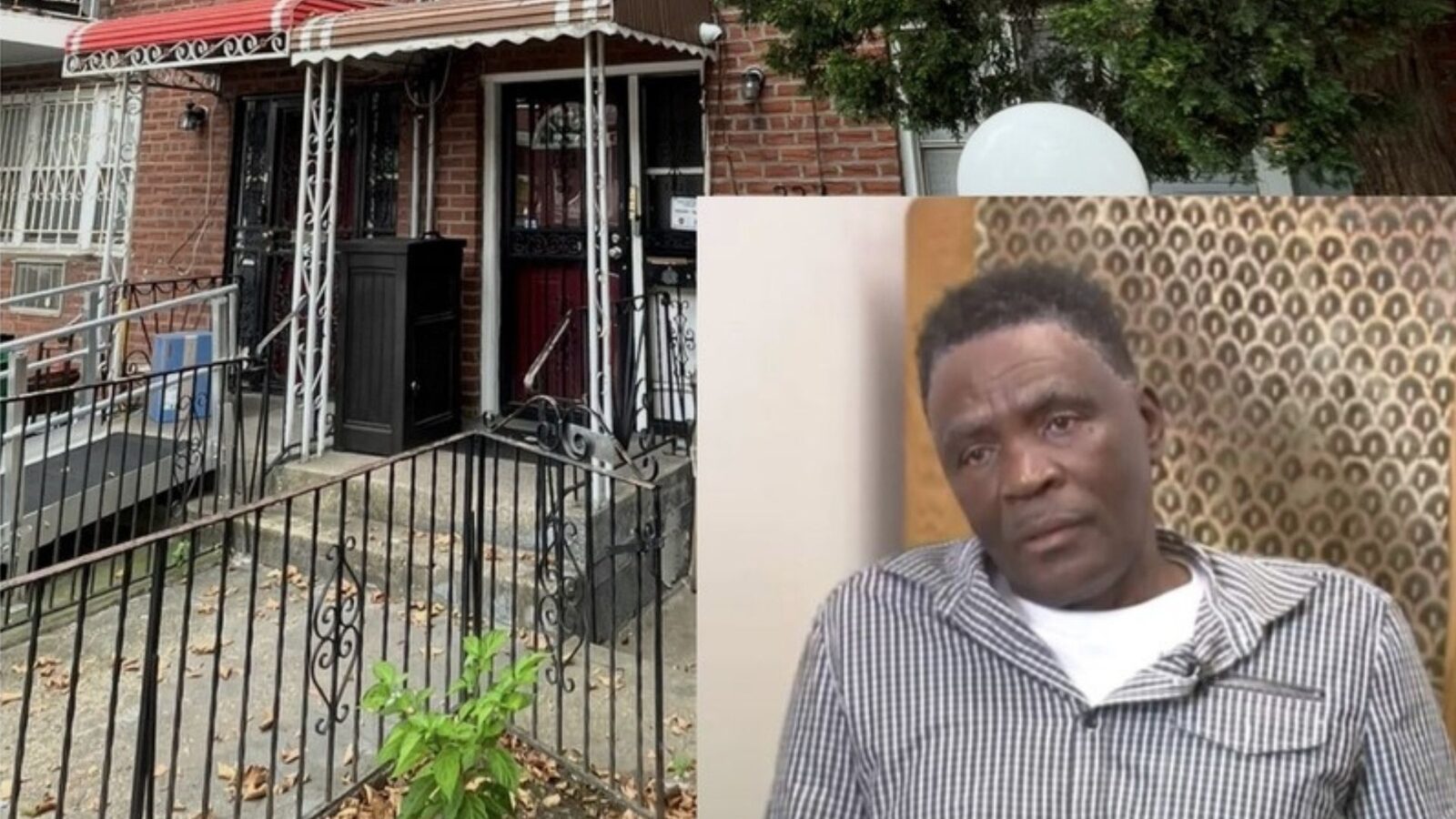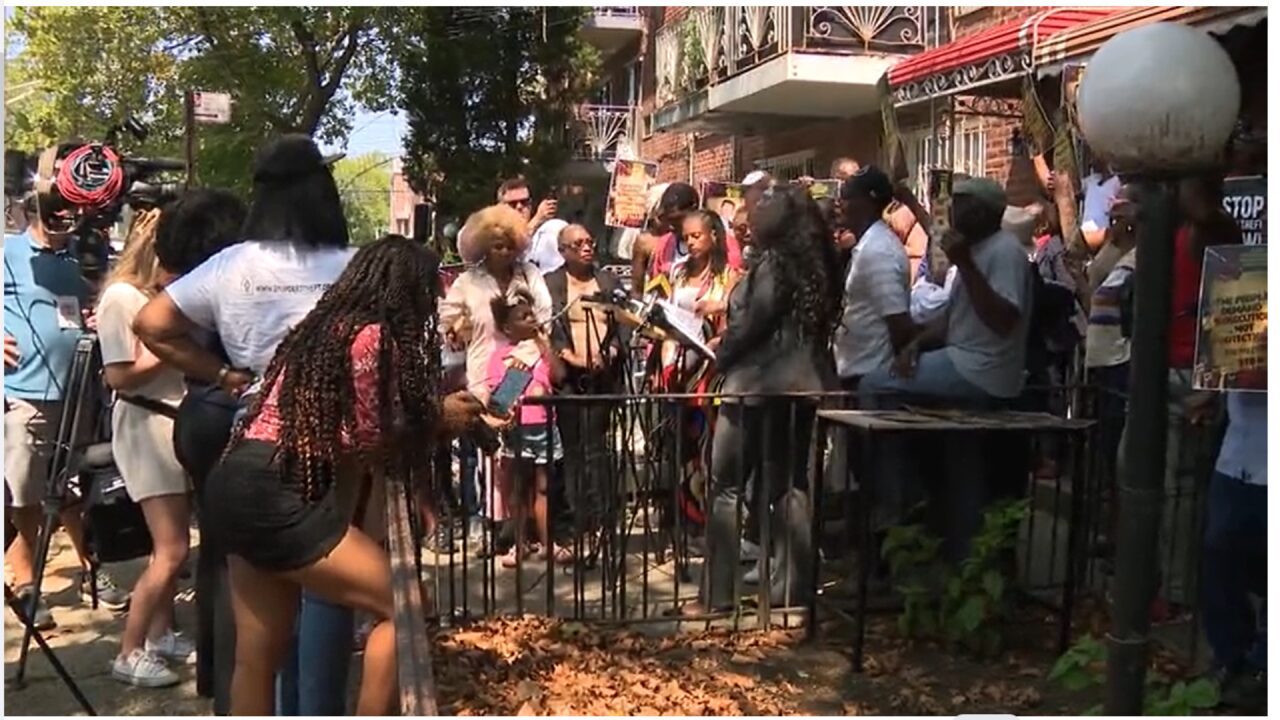Jamaican man in Brooklyn becomes a victim of what some describe as underhanded gentrification
Jamaica Live News Desk– | Aug 16, 2025
Brooklyn, New York – A Jamaican immigrant’s American dream turned into a nightmare when the city of New York sold his fully paid-off home at auction over an unpaid water bill of just over $5,000. The case of Filmore Brown, a Canarsie resident who worked tirelessly for decades to achieve homeownership, has sparked outrage and renewed concerns about what many describe as “underhanded gentrification” and deed theft disproportionately affecting Black communities.

A Dream Shattered Overnight
Brown, who bought his home in 1996 and finished paying off his mortgage in 2019, thought he had secured a stable future for himself and his tenants. But in recent weeks, he was stunned when strangers arrived at his property in the middle of the night with police, informing him that his house had been foreclosed and sold.
“I didn’t know and I chased them, and they come back with police,” Brown recalled. “I didn’t know, I just would’ve paid it.”
According to records, Brown’s property went into foreclosure after the city sold his $5,057.11 unpaid water bill to a trust of private investors. These trusts are tasked with collecting debts—often with added interest. If left unpaid, the trust can initiate foreclosure proceedings, leading to the property being auctioned off.
That’s exactly what happened to Brown, who said he never received proper notice.
City Officials vs. Brown’s Attorneys
Brown’s attorney, Alice Nicholson, argues that he was never properly notified about the lien, calling the foreclosure an unjust act. “He said he didn’t know anything about this and I believe him,” Nicholson told reporters. She added that Brown had been paying thousands of dollars in current water bills, but once the old debt was placed in trust, it no longer appeared on his statements.
Attorney Yolande Nicholson described the situation as “heart-wrenching,” saying: “He just paid a water bill this year in the thousands of dollars. The two payment systems aren’t even connected. There needs to be better notification.”
City officials dispute this, however. The NYC Department of Finance insists that notices were sent and that court documents show someone at Brown’s home was served in November 2020, during the height of the pandemic.
A Finance Department spokesperson issued a statement defending the lien process:
“Water and sewer charges are legal liens against a property, and while they must be resolved, DEP handles these matters with care and a commitment to supporting those in need. The lien sale sustains the financial health of the water and sewer system… Unpaid bills ultimately force everyone else to pay higher water rates, so it’s essential all customers pay their fair share.”
The department also highlighted recent reforms meant to give property owners more time, information, and payment options to avoid foreclosure.
Mr. Brown claims he didn’t get the notice. He lives on the top floor of a three-unit home and rents out the lower two units to other families.
“I would’ve paid it, no problem,” he stated.
“He said he didn’t know anything about this and I believe him,” said Brown’s attorney, Alice Nicholson.
The attorneys working on Brown’s case said he has paid thousands of dollars in current taxes and water bills since his bill went into the trust.
“He just paid a water bill this year in the thousands of dollars, so it’s just heart wrenching,” said attorney Yolande Nicholson.
Nicholson said once his old bill was put into the trust, it didn’t show up on his current bills. The two payment systems aren’t connected.
“There needs to be some type of notification that there’s another bill out there that needs to be paid,” Nicholson said. “There needs to be more done to make sure that these hardworking older people who paid off their mortgage and have fixed incomes don’t get into that kind of rut.”
There are more than 6,800 that have been put into the trust for not paying water bills. Our ABC data team found a majority of them live in communities of color.

A spokesperson with the city’s Department of Finance sent this statement in response to Brown’s story:
“Our goal is never to see a homeowner lose their property. Last year, we implemented reforms to specifically prevent unfortunate situations like this from happening, by giving property owners more time, information, and resources to resolve their debts. For this year’s lien sale, we strengthened our outreach efforts to make sure we reached as many owners as possible, working with non-profit groups and other City agencies to conduct door-to-door visits, direct phone calls, and other targeted communications.
Homeowners have several options for resolving their debt with the City, whether it’s related to property taxes, water and sewer charges, or other municipal charges. This includes property tax exemptions for eligible residents, flexible payment plans, and other forms of assistance. Our priority is to connect property owners with these resources early, so they can protect their homes and avoid the lien sale altogether.”
Larger Crisis in Black Communities?
Brown’s case is not unique. Data shows that over 6,800 properties across New York City currently have debts placed into trust, many of them in communities of color. Critics argue that this system disproportionately strips wealth from Black and immigrant homeowners, paving the way for gentrification as homes are resold on the open market.
Elected officials rallied around Brown on Friday, condemning the foreclosure as part of a wider pattern of systemic inequities. They argue that Black families who work for decades to build wealth are being robbed through bureaucratic loopholes.
“This is deed theft disguised as debt collection,” one official declared. “You work your whole life to pay off a home, only for it to be stolen in the dead of night over a water bill? That’s not justice.”
A Fight for Justice
Brown, who lives in the top unit of his three-family home and rents the other two to working families, insists he would have paid the debt if he had been properly informed. For him, this fight is not just about money but about dignity.
“It was stolen from me,” he said.
His lawyers are now exploring legal options to challenge the foreclosure and reclaim his property. Meanwhile, activists are calling for the city to suspend all lien sales until a fairer system is put in place.
For now, Brown and his supporters say the answer is clear: “This isn’t just about a water bill. It’s about a system designed to take from the vulnerable and give to investors.”
